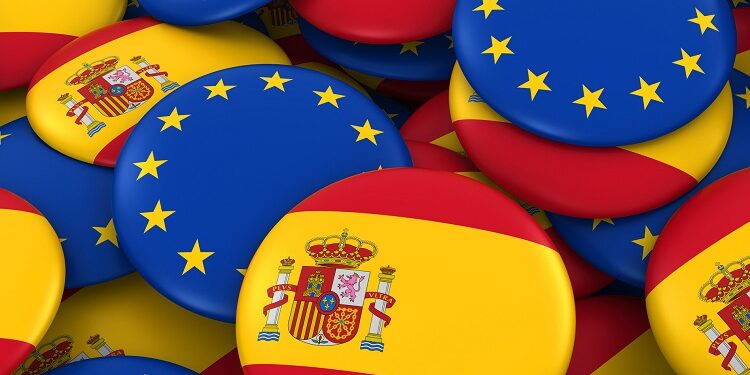The Diplomat
The next Spanish Presidency of the Council of the EU will place special emphasis on two fundamental geographical areas for Spain, such as Latin America and the Southern Neighborhood, which will result in the organization of an EU-CELAC Summit in Brussels and a ministerial meeting of the Southern Neighborhood in Barcelona.
This is what emerges from the report of the Minister of Foreign Affairs, José Manuel Albares, on the Spanish Presidency of the second half of 2023, which was presented yesterday to the Council of Ministers. According to the document, the work program of the Spanish Presidency will be articulated around the work axes of the Union established by the current European Commission: the Ecological Transition, the Digital Transformation and the Social Pillar of the Union. The response to the migratory crisis, COVID or the war in Ukraine and other essential issues such as strategic autonomy, energy security and the pact on migration and asylum will also be addressed.
Within the framework of these priorities, the main objectives of the Presidency’s work program will be the debate on the future of the Union, the review of the recovery and resilience plans and economic governance, the Pact on Immigration and Asylum and the Social Pillar Action Plan – with special attention to issues such as disability, childhood, gender-based violence and the Europe of Health. Other objectives of the work program are the development of the internal market through the strengthening of European industry and the strategic autonomy of the Union, the EU Digital Agenda, the Green Agenda of the European Union, the agricultural and fishing world, the demographic challenge, youth and the future of education and the global role of the European Union in multilateral policy and trade policy.
On the other hand, the Spanish Presidency will emphasize “two fundamental geographical areas for our country, Latin America and the Southern Neighborhood”, the Executive pointed out. Within this framework, the organization of an EU-Community of Latin American and Caribbean States (CELAC) Summit in Brussels and a ministerial meeting of the Southern Neighborhood in Barcelona are planned. The Catalan capital hosted in November 2020 the second ministerial meeting between the European Union and the Southern Neighborhood, which brought together the foreign ministers of the 27 EU Member States and nine of the ten countries of the Southern Mediterranean Neighborhood (Algeria, Egypt, Israel, Jordan, Lebanon, Libya, Morocco, Palestine and Tunisia; only Syria was excluded for political and security reasons).
The document presented by Albares also informs on the preparations for the Spanish Presidency, in aspects such as the working structures -including the Organizing Committee, the Office for the Coordination of the Spanish Presidency of the European Union and the General Secretariat for the European Union-, the training of the officials who will participate in the Presidency, the events and meetings in Spain -22 informal ministerial meetings and an Informal European Council- and the cultural program throughout the national geography.
Regarding human and budgetary resources, the Spanish Presidency will be financed with a decentralized budget, i.e., each body will be responsible for meeting the expenses derived from its activities. However, the Coordination Office of the Spanish Presidency of the European Union will assume the financing of the Informal European Council and the Informal Ministerial Meetings. On the other hand, in the area of human resources, the Permanent Representation of Spain to the European Union will be strengthened. “In short, it will be a Presidency with restrained and responsible spending,” the Government pointed out.
At the press conference following the Council of Ministers, the Government spokeswoman, Isabel Rodríguez, reported yesterday that more than 1,000 civil servants are being trained specifically to “give the best version of ourselves” and that the various official meetings are already being organized in the headquarters that will host them, spread throughout all the autonomous communities “to show Spain in its diversity to all EU countries”.





